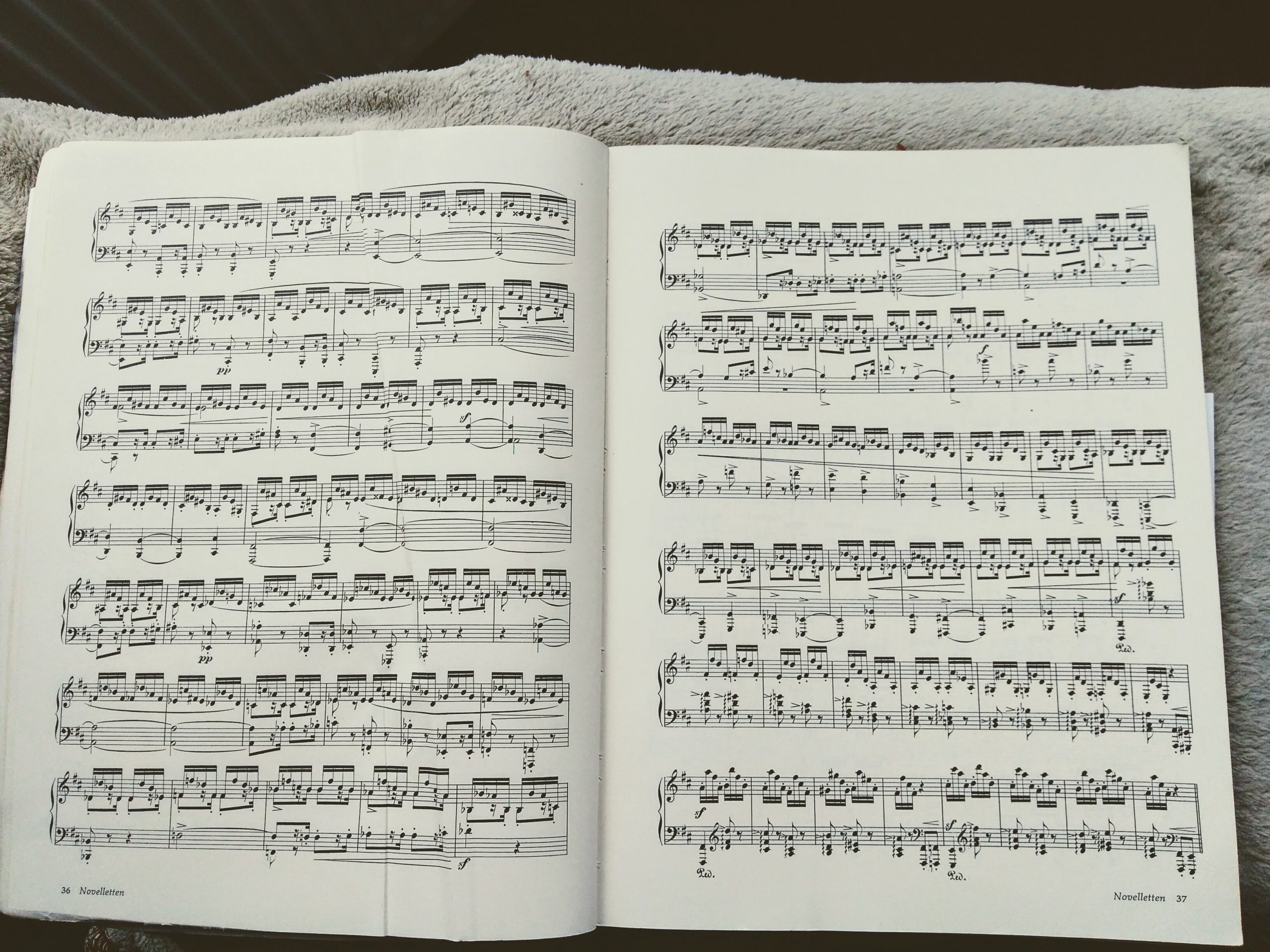 I have tons of piano music by Schumann and in lockdown I’ve been working through the volumes.
I have tons of piano music by Schumann and in lockdown I’ve been working through the volumes.
Now, I’ve always been a huge fan of Schumann, but I have to admit that when you spend a day going through some of his, shall we say, less focused piano music you become very aware of his tendency to obsess. To hit on a motif and worry it to death. To slip sideways into a lyrical phrase in a deliciously unexpected key and then not be able to think of anything to do with it except repeat it (several times). To work up a storm of energy and then sustain it for so long that you realise he’s got himself trapped and and is struggling in the semiquavers like a fly in treacle.
Recently I’ve been exploring longer sets or ‘cycles’ such as the Humoreske, the Novelletten, the Sonata in G minor, and the five-movement Faschingschwank aus Wien. This last, which means ‘Carnival prank from Vienna’, is a collection of virtuosic pieces intended to be fantastical and humorous in tone. Energetic and ebullient they are, if not actually humorous – at least not to my ears.
Over the years I’ve often thought that I should learn these pieces to concert standard and play them in recitals. I embark on practising them, only to become discouraged by pages and pages of airless figuration. The photo of a couple of pages from the Novelletten will indicate, even if you can’t see the notes clearly, the unvarying nature of the figuration, the lack of rests and silences. All his big pieces seem to have such pages, often in the final movement (where they are not welcome). I can visualise only too well the fidgeting I’ve noticed in the audience when Schumann gets into what modern listeners might call ‘OCD mode’. It happens in his chamber music too.
Yet when I revisit these piano pieces I realise that repetition is only one side of Schumann’s coin. The other side is his astonishing ability to break out of an obsessive pattern and come up with something of piercing beauty, often just when you were getting fed up with him. The slow movement of the G minor Sonata. The lyrical episodes tucked away in the Novelletten. The genius of the ‘Stimme aus der Ferne’ (voice from the distance) which suddenly speaks in a small quiet voice in the middle of Novellette no 8, recalling a tune composed by Clara, at that time estranged from him. The fourth-movement Intermezzo of the Faschingsschwank aus Wien, a rush of completely convincing ardour in the midst of rather dogged repetition in the surrounding movements.
It’s as if Schumann knew he had to work himself into a kind of trance, playing things over and over at his piano, making his ears ring with sound before he could get into the state of mind where a heavenly vision would be vouchsafed him. We, his fans, suffer with him in order to reach those glorious moments.




Yes, fascinating, isn’t it how you can ‘feel’ Schumann’s obsessions in the notes and also feel for him as a person. I never got beyond Papillons but I absolutely loved learning it in my teens.
I was excitedly introduced to a set of six pieces by Schumann recently (I say ‘excitedly’, but it was my duet partner who was excited). I was quite put off by the title, ‘6 Studien in Kanonischer Form’. “Ok then, let’s give them a go”, I said.
These little pieces were written for pedal piano and then brought to life again by Debussy (he arranged them for two pianos) and Bizet (who transcribed them for 4 hands at one keyboard). I was utterly delighted by them, the fourth one in particular. They’re full of delightful moments. Regarding the solo pieces, I’m glad that a pianist as illustrious as yourself also pauses occasionally to wonder where it’s all going… And then we arrive at a fragrant forest glade, and it’s all worth it.
James,that’s a nice story! I like how those French composers were so fond of Schumann. I don’t know Bizet’s duet arrangement, but Bizet was such a fine composer, I bet he did a really good one.
Thank you for this post. I always turn to Schumann when I need an outlet at the end of a tough day and his music is a constant companion. Your words about obsession and “hit upon a motif and worry it to death” are spot on. I’ve found this inward, circling obsession and the attempts to break free strangely comforting during this lockdown. It has also been very isolating, so I was so pleased to read your words because they resonated and described more eloquently how I felt. Thank you.
Thank you Andrea! I wrote that post a while ago, so it’s very nice to find that someone has just come across it and responded positively to it.